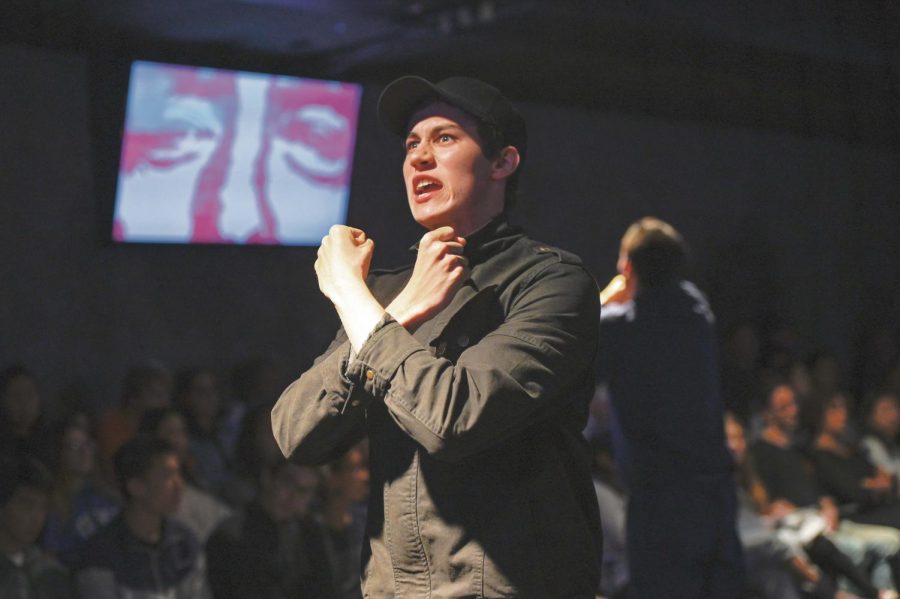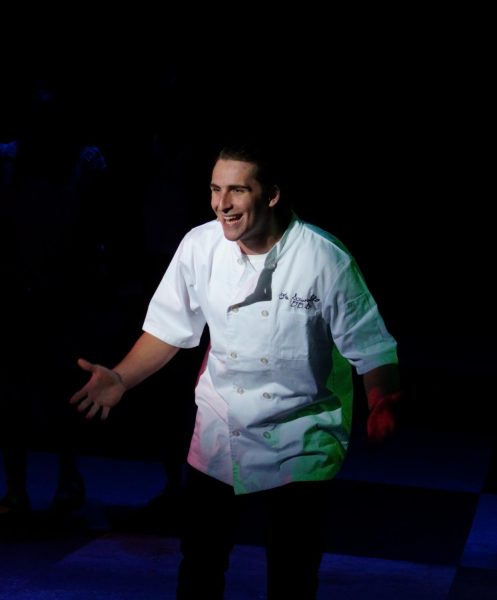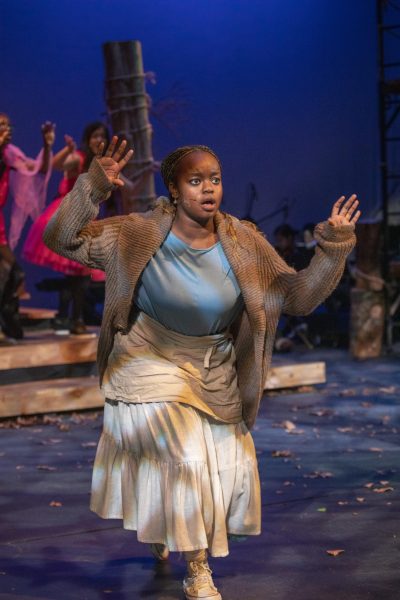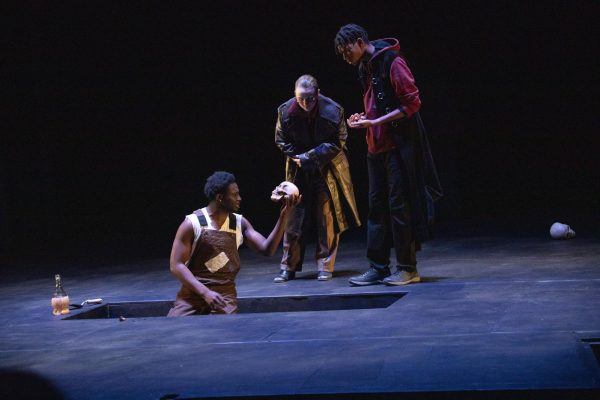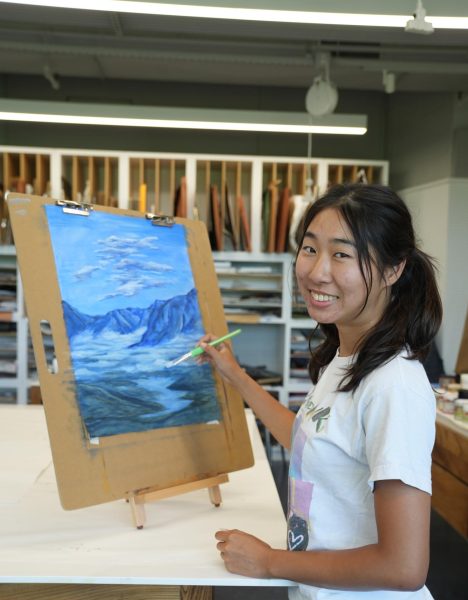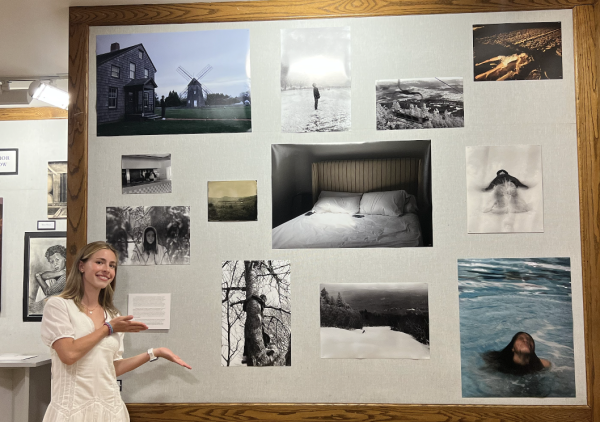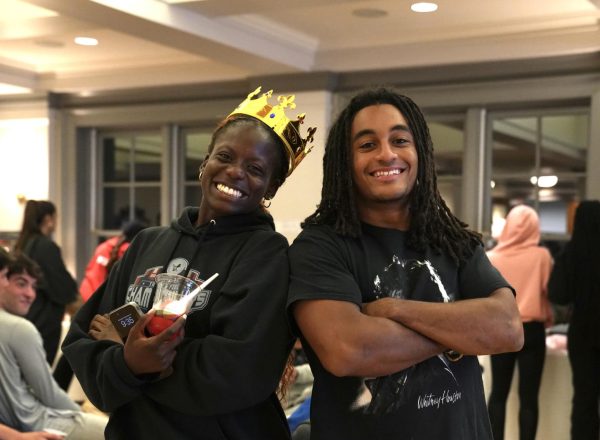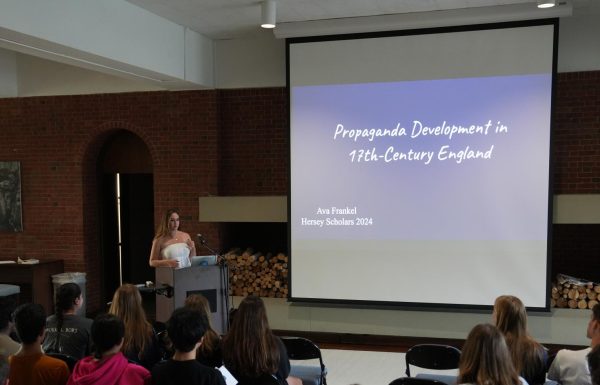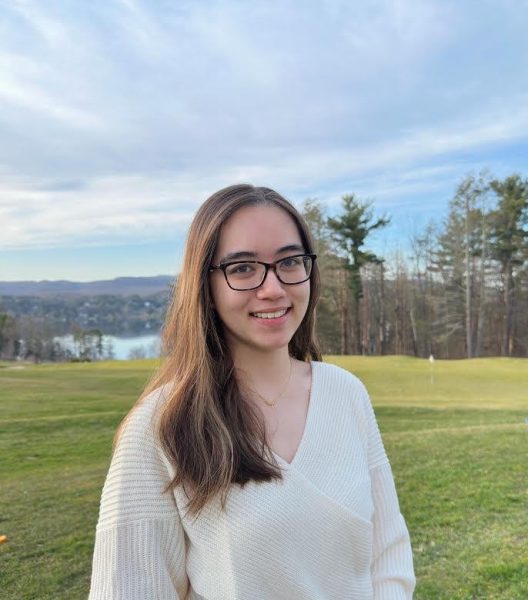Actors Go Back to 1984
Zach Scrima ’22 expresses his hate towards Goldstein, a principle enemy of the Oceania state.
As audience members entered the Black Box Theatre, they were greeted by two standing “Thought Police” in the hallway and walls covered with “Big Brother” slogans and .
For its spring production, the Hotchkiss Dramatic Association (HDA) presented Robert Owens’, Wilton E. Hall, Jr.’s and William A. Miles, Jr.’s adaptation of George Orwell’s post-war dystopian classic, 1984. This play concluded the 2019 production theme of “Rebellion.” It was directed by Mr. Derek Brashears, director of the theatre program.
Orwell witnessed the danger of absolute political authority in Spain, Germany, and the Soviet Union during the middle of the 20th century. Published in 1949, 1984 depicts a future of perpetual war and twisted truth in Oceania, an imaginary superstate. Big Brother, leader of the Oceania Party, seeks to control his citizens’ behaviors and even emotions and thoughts. The protagonists Winston Smith and Julia, two cogs in this machine state, rebel against Big Brother’s inhumane surveillance.
Skylar Kim ’19, who played Julia in the play, faced challenges in character-building. Kim said, “[Adapting to the role of Julia] was a challenge in the sense that the book was written seventy years ago, and there were some [problematic] notions about women then. I need[ed] to bring back the strength [and] vibrancy that Julia has in the book through movements.”
Instead of Walker Auditorium, where main-stage productions are usually staged, Mr. Brashears decided to stage 1984 in the Black Box Theatre to provide a multi-dimensional view for the audience. The crew installed television screens on all four walls to convey Big Brother’s omnipresent surveillance. Dylan Kalaydjian ’19, Dominic Bellido ’20, and Luke Gardiner ’21 produced videos for the play. Other community members, including William Kinsolving, Mike Reilly, Doug McCarthy, Stephanie Hahn, and Ian Gill ’19, contributed supplemental performances via digital media, both enriching the experience and taking advantage of the Black Box Theater. Mr. Brashears said, “I have been working with several students as collaborators to create this world. Three-fourths of this show features the influence of the media and noise on the characters, so their work has been priceless in creating this world.”
Mr. Brashears believed that the depiction of society in 1984 still rings a bell in the present, saying, “This story is bleak. Orwell was afraid of this future, and wanted his readers to feel the same way. The story features…intellectual and physical distress, violence, and brutality. These are not emotions to take lightly.” Due to the content, the program advised that the production would not be suitable for children under 12.
The production impressed audience members with its intense visuals and the actors’ realistic performances. Kiki Henry ’22 said, “The [performers] did a really good job of portraying the characters and taking us on [a] journey to the [dystopian] world. The way the lighting [was] shown on the actors created a sense of eeriness. The use of masks portray[ed] a different sense of being, instead of human.” Fati Salisfu ’22, another audience member, said, “The actors portrayed the power-play in this show very well in terms of their physical performance[s], their tone, and their facial expressions.”
The HDA Board is currently brainstorming a unifying theme for next year’s productions.

